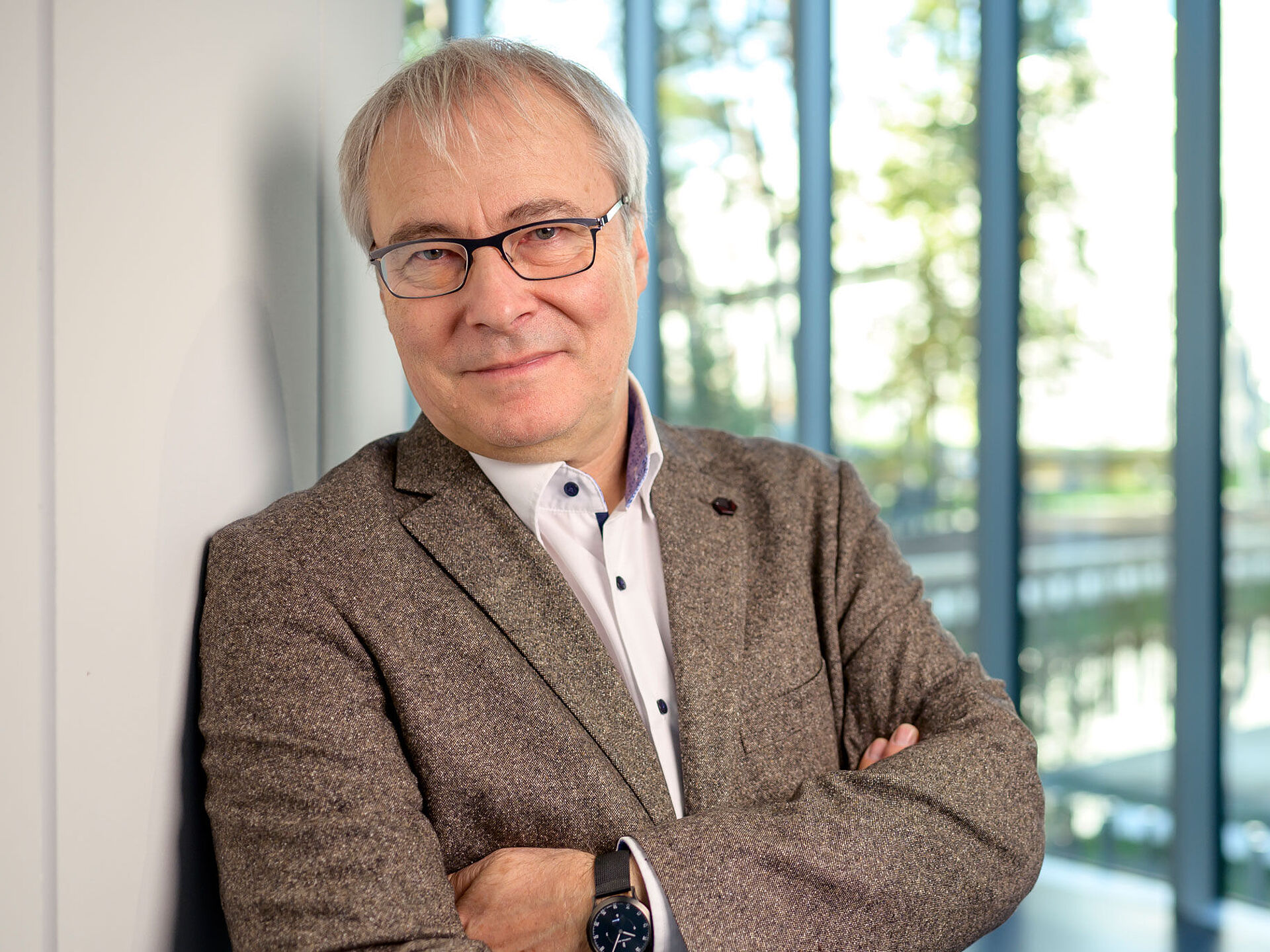"In old age, bilingualism has a positive effect on the structure of the brain and cognitive ability"
An interview on the benefits of bilingualism.
Speaking two languages every day at a young age strengthens one's reserves against dementia. Researchers at DZNE have shown this in a study. This involved testing of cognitive performance and examination of the brain by magnetic resonance imaging. An interview with ageing researchers Elizabeth Kuhn and Michael Wagner about the benefits of bilingualism, the media buzz surrounding the study - and why it probably doesn't help much to quickly take a Spanish course after retirement.
Actually, you two should have a perfect shield against dementia, since you work in an international environment in different languages every day, don't you?
Michael Wagner: (laughs) Let's just hope that one day it will be rewarded!
You've observed: Someone, who lives bilingually, builds up a protection against dementia.
Elizabeth Kuhn: But there are actually two decisive factors. Firstly, how often a second language is spoken, in extreme cases every day: then the positive effects on cognitive performance are stronger. And secondly, we have been able to show that it depends on the phase of life. Those who are in a bilingual environment early in life benefit the most - we are talking about youth and early adulthood. In older age, this early bilingualism then has a positive effect on the structure of the brain and cognitive ability. People who have learned several languages at an early age are mentally fitter. This is shown by the cognition tests we used. Through this mental fitness, they build up a certain protection against dementia.
Did the result surprise you?
Kuhn: We already expected that bilingualism would have a positive effect. This has been suggested by other studies, by the way. But we were the first to make this distinction between the phases of life: We looked separately at the younger years from 13 to 30, the middle years from 30 to 65 and the later years from 65 onwards. We were the first to include this in the study, and we did not expect the effects to be so strong.

Nevertheless, it is not a new finding that strong use of the brain builds up a so-called cognitive reserve. Isn't bilingualism just one of many ways to build up such a reserve?
Wagner: On a superficial level, you can actually say that all activities in early life - whether you play chess, learn an instrument or travel the world a lot - ensure that you have a higher level of performance in old age and that it therefore takes longer to develop dementia. But there has been a tremendous amount of research in recent years on the topic of cognitive reserve, and there has been a shift to looking at resilience to the pathological process.
What does that mean?
Wagner: It can be shown that the pathological process - i.e. the progression of the disease - does not affect a patient's cognitive abilities as much if they have more reserves. However, we did not actually investigate this in our study: We did not include any indicators of the pathological process.
Is the positive effect actually due to bilingualism itself? After all, people who speak two languages every day usually live in a situation that is more challenging in itself - for example, studying abroad or working in a foreign country.
Wagner: In epidemiology, this is called confounding by known or unknown third variables: In our example, bilingualism would be a result, but in reality it is only an indicator for something completely different. We have statistically controlled this for known third variables such as education. One can speculate for a long time about other variables.
Kuhn: But our pattern of results with stronger effects of early bilingualism rather speaks against the fact that unknown and uncontrolled third variables have distorted our results. Living in another country, for example, should still be stimulating at an older age - and then one would have expected equally strong effects with later multilingualism. Therefore, we are quite sure that bilingualism is indeed the factor responsible for the results - and not merely an indicator of something else.
In your study, you rely on data from the DELCODE study, in which around a thousand subjects are followed at the DZNE over many years. When you designed this study, did you already specifically plan to investigate bilingualism?
Wagner: A cohort study of this kind always has numerous goals; in DELCODE, the focus was, among other things, on risk and protective factors with regard to cognitive deterioration in old age. DELCODE has a questionnaire that we call "Lifetime of Experience". In this questionnaire, we ask the respondents about many different aspects of their lives, including multilingualism. So it is one aspect of many - but we clarify it in sufficient depth because we ask about how often a second language is used, at what age it was learned and so on.
Don't the results mean that migrants and refugees should be much less vulnerable to dementia?
Wagner: That is perhaps true under certain conditions, but migrant status is also associated with many other factors, from often lower socio-economic status to poorer housing conditions to social stress. Therefore, the question is difficult to answer. At any rate, no results can be derived from our study directly, since only people with a good knowledge of German participate in DELCODE - otherwise they would not be able to cope with the cognitive tests simply because of their language skills.
Is the topic of bilingualism now finished for you or are you continuing to research it?
Kuhn: We definitely want to come back to it - at a later point in time, when more data is available in the DELCODE study. Above all, we want to investigate whether bilingualism helps the subjects in the long run when it comes to slowing down the effects of pathological processes. We are currently collecting the data we need for this.
Your study has has attracted international attention: The New York Times reported, you gave an interview to the BBC - how do you explain the interest?
Wagner: Everything that has to do with protective factors against Alzheimer's arouses great curiosity and, of course, hope. Everyone wants to know what helps and what they can do themselves to protect themselves against dementia.
Were you able to convey good news in these interviews?
Wagner: Yes, our study on bilingualism is of course encouraging. But unfortunately I also have to say that anyone who rushes into a Spanish course after retirement and crams vocabulary in order to be armed against future dementia - that probably won't help them, at that point it's simply already too late. But continuing to speak languages learned earlier, and generally keeping mentally and physically active, is good in any case.
About the persons
Prof. Dr. Michael Wagner heads the Neuropsychology research group at DZNE’s Bonn site and at University Hospital Bonn. He investigates risk factors for the development of dementia and new methods to better diagnose cognitive disorders in the early stages of Alzheimer's disease.
Dr. Elizabeth Kuhn works as a post-doc at DZNE’s Bonn site. The French scientist is, together with former DZNE post-doc Tommaso Ballarini, one of the two first authors of the study on bilingualism.
Original Publication
Linking early-life bilingualism and cognitive advantage in older adulthood
Tommaso Ballarini, Elizabeth Kuhn et al.
Neurobiology of Aging (2023)
DOI: https://doi.org/10.1016/j.neurobiolaging.2022.12.005
June 2023

